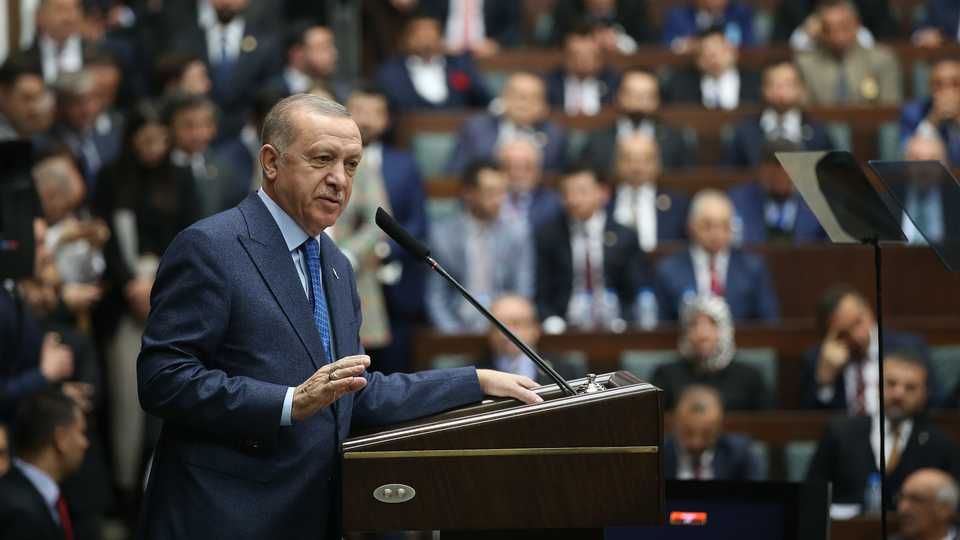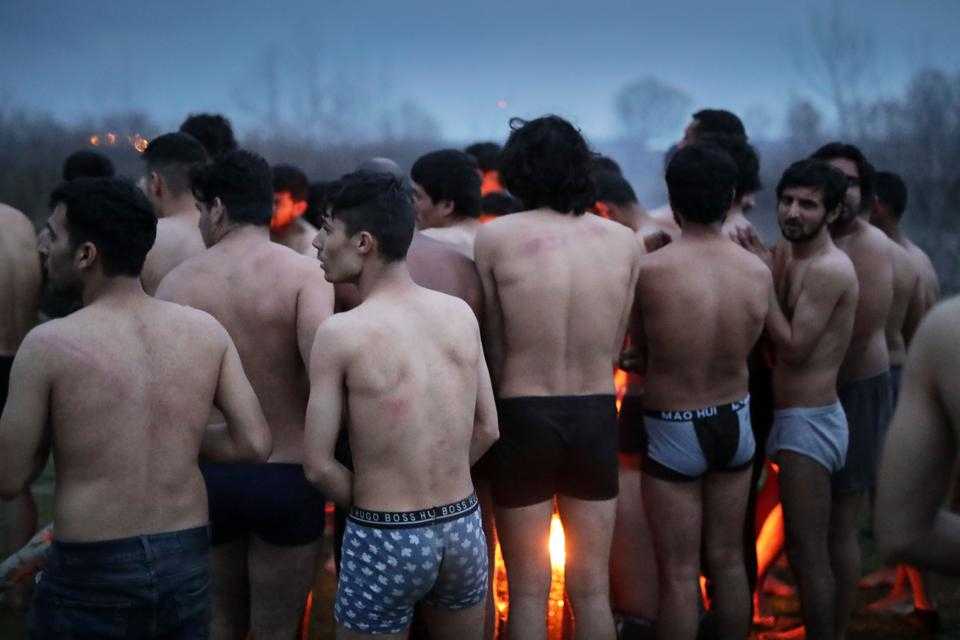
Turkey’s President Recep Tayyip Erdogan said on Wednesday he would keep Turkey’s border open for refugees until the EU had met all Ankara’s demands while comparing Greece’s response to the crisis to the Nazis.
“Until all Turkey’s expectations, including free movement, updating of the customs union and financial assistance, are tangibly met, we will continue the practice on our borders,” he said in a televised speech.
Turkey’s decision at the end of February to re-open its border for refugees sparked a row with Brussels, as well as harsh exchanges with Greece.
Greece has teargassed thousands of refugees and migrants trying to break through and been accused of beating and stripping them of their belongings if they made it across the border.
“There is no difference between what the Nazis did and those images from the Greek border,” Erdogan said.
At least four refugees have been killed after they tried to cross the Greek border to reach different European Union countries.

“With the warming of the weather in the spring, the influx of irregular migrants heading to Europe will not be limited to Greece but spread all over the Mediterranean,” Erdogan warned.
But he reiterated that Turkey hopes for a fresh agreement with Brussels ahead of the next EU leaders’ summit on March 26.
Turkey already hosts some four million refugees –– most of them Syria –– and fears another mass influx as the regime, backed by Russia and Iran, pushes to retake Idlib.
Turkey to retaliate if posts are hit in Syria
Erdogan also said Turkey will respond heavily if its observation posts in northwestern Syria’s Idlib province are targeted by the Syrian regime or its allies.
Turkey will do more than mere retaliation if its observation posts in Idlib are targeted, Erdogan said.
Turkey launched Operation Spring Shield on February 27 in the region after at least 34 Turkish soldiers were killed in an Assad regime air strike in Idlib, and after repeated violations of previous ceasefires.
Under a 2018 deal with Russia, the Turkish troops were in Idlib to protect civilians from attacks by the regime and terrorist groups.
Erdogan said last week’s ceasefire in Idlib was achieved following Turkey’s military campaign there, giving Idlib residents the opportunity to live free of threats, adding that Turkey is closely watching developments on the ground.
Turkey is closely monitoring the deployment of the Assad regime and allied militants near the ceasefire lines, he said, stressing that Turkey will abide by the ceasefire deal so long as the Assad regime and its allies do the same.
Under the ceasefire deal in Idlib, located just south of the Turkish border, all military activities are to end there, along with the establishment of a security corridor 6 kilometres to the north and south of the key M-4 highway.
Joint patrols
Joint Turkish-Russian patrols will also begin on March 15 along the highway from the settlement of Trumba – 2 km to the west of Saraqib – to the settlement of Ain al Havr, under the deal.
Erdogan also spoke on recent developments concerning coronavirus in Turkey, which confirmed its very first case early Wednesday.
“Hopefully, Turkey will come out of this without any casualties. This is our wish. No virus is stronger than our measures,” said Erdogan.
Erdogan also urged the public to carefully maintain personal hygiene to stem a possible outbreak in the country.










Discussion about this post